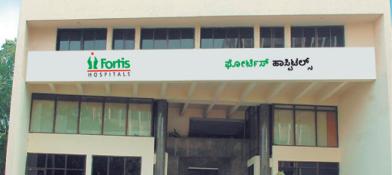Morning-after pill
Overview:
The morning-after pill is the W.H.O.-approved oral emergency pill for contraception. Emergency contraception pills are not the same as birth control pills. Birth control pills are taken daily for routine contraception. Emergency contraception is taken when routine contraception has not worked. It has to be used within 72 hours after unprotected sex. It is an FDA-approved drug to be used when one wants to avoid getting pregnant. Depending on the type of pill, it can be taken immediately or within 72 hours.
Indications:
Morning-after pills are indicated as an emergency contraception when the presumed contraceptive methods have failed. They are indicated when one has unprotected sexual intercourse or misses a birth control pill. This is also used in cases of sexual assault.
Contraindications:
This is not indicated in terminating a pregnancy that is already implanted. This is contraindicated for those with an allergy or hypersensitivity to the medications. Liver disease, pregnancy, and certain medications are contraindicated for the use of morning-after pill usage.
Mechanism of action:
Levonorgestrel in the morning-after pill, a second-gen synthetic progesterone, delays ovulation and blocks fertilization. Ovulation, which is a routine process of the normal reproductive cycle, releases eggs so that sperm can fertilize them for pregnancy to happen.
The morning-after pill thickens cervical mucosa, impeding sperm movement, and delays ovulation. It does not significantly affect the uterine lining. Even when taken before ovulation, the drug is most effective. It has efficient absorption and remains effective even after processing in the liver.
Types of emergency contraception.
Emergency contraception is of various types. They are:
- Plan B One-Step: Progestin-only morning-after pill called Levonorgestrel. This is also called Plan B One-Step. It is available over the counter and does not need a special prescription. This is taken as a single pill. One has to take this pill as soon as possible, within three days of unprotected sex. This can be taken even after 5 days, but the effectiveness of medication may drop.
- Ulipristal (Ella): Obtainable solely through prescription, this morning-after pill is most efficient when used correctly, viable for up to five days post-unprotected intercourse.
- Combined birth control pill: This is another kind of emergency contraception. This contains routine birth control pills that have to be taken in two doses. They are generally taken at higher doses than the routine dose. These medications have to be taken within a certain time frame for the medication to work. Hence, taking these medications under prescription is always advisable as the dosage varies.
- Combined birth control (Yuzpe regimen): This emergency contraception is done by taking a few additional pills from a routine birth control regimen. Yuzpe regimen involves taking birth control pills along with 100mcg of ethinyl estradiol and 0.5mg levonorgestrel. Two doses are taken 12 hours apart. These are the least effective and not much tolerated among all the emergency contraceptive methods. This is considered when other emergency contraception methods are not available.
Instructions to follow for Morning-after pills:
- These morning-after pills must be taken as soon as after unprotected sexual intercourse. They must be taken within 120 hours of unprotected sex. They can be taken at any stage of the menstrual cycle.
- Follow the instructions as given on the pills. Plan B one step should be taken immediately after unprotected sex followed by a second dose within 72 hours.
- In case of symptoms like vomiting after taking a morning-after pill, another dose can be taken only as prescribed by the healthcare provider.
- It is better to refrain from having sex until another method of birth control as there are high chances of getting pregnant if one continues to have unprotected sex after having morning-after pills.
- One has to resume using birth control despite taking morning-after pill.
- Bleeding or spotting can occur sometimes after taking these pills.
- Bleeding or spotting occurring more than a week or severe abdominal pain occurring three to five weeks after taking a morning-after pill indicates miscarriage after pregnancy or pregnancy occurring outside the uterus (ectopic pregnancy).
- Regular intake of these pills is not recommended, and they do not offer protection against sexually transmitted infections.
- The sooner these medications are taken after unprotected sex, the more effective they are. As the window period increases, the effectiveness of the morning-after pills decreases.
- The menstrual cycle is the main indicator that shows the efficacy of the morning-after pills. If the cycle is delayed by a week, consider a pregnancy test and contact a healthcare provider for further evaluation.
Effectiveness of the pill:
The risk of pregnancy is reduced by 72% if the morning-after pill is taken 72 hours after unprotected sex.
Side effects:
Side effects after taking a morning-after pill last only a few days. These include nausea, dizziness, fatigue, headache, tenderness in the breasts, bleeding or spotting, and mild lower abdominal pain or cramps.
Risks and complications:
Some risks and complications associated with the usage of the pills are failures of the drugs even when taking incorrect dosage. Morning-after pills are not effective in obese individuals and those taking certain medications like barbiturates.
Conclusion:
The morning-after pill is an important, safe, accessible, and emergency contraceptive option for avoiding unwanted pregnancy after unprotected sex or failed contraception. Levonorgestrel is an active ingredient in the pill that works by delaying ovulation and fertilization. These are highly effective pills when taken within the recommended duration.































